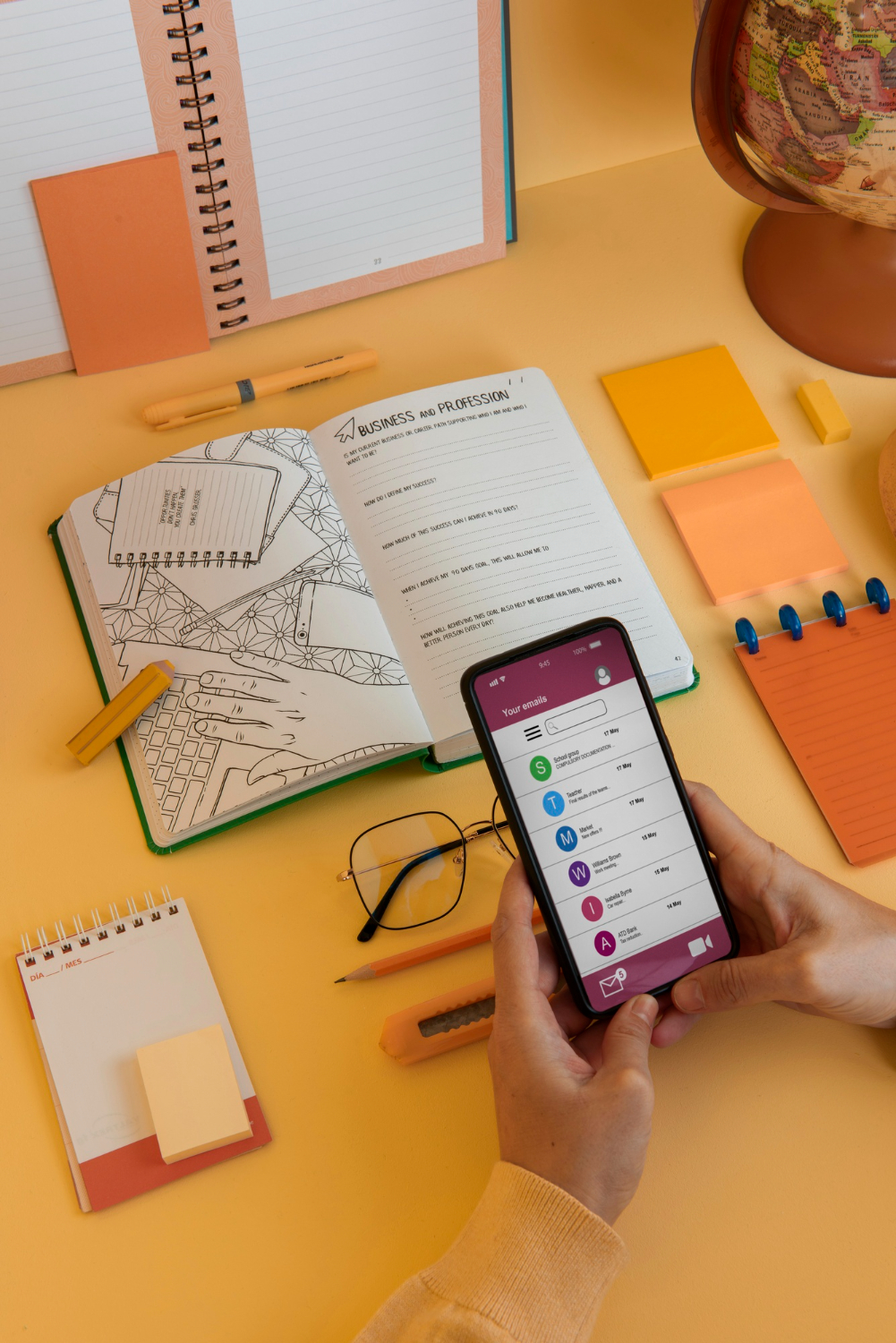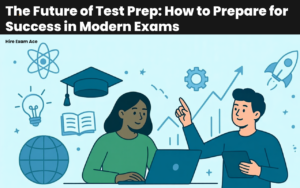20 High-Potential Android App Ideas for Students with Vision
In today’s quick paced classroom setting, Android apps have become a major help to students. No matter if you’re working on hard subjects, don’t have all the time you want or trying to have a balance in your study life, your cellphones and their apps can change how you learn and schedule daily patterns. For students who can see those who dream a lot and want to fix the way they learn, making or using smart apps can bring new ways and winning.
This blog highlights twenty high potential ideas for Android apps made for those students who want their learning fast, simple and unique. Every idea takes up hard things students do daily and gives special ways to learn better. Whether you take care of your time table, prepare for your exams or want to hire someone to take my online exam to get homework help with extra academic direction.
Smart Study Planner App
Problem: Students often struggle to balance multiple subjects, assignments, and exams.
Solution: An intelligent app for plans to study, driven by AI might look at a learner’s timetable, then tell the best times to study, when to remind them and when they need to rest.
Features could include having special things you do each day, doing it over if you forget, working with Google Calendar on easy ways to change, so it can make good plans for students, so they don’t have too much stress.
AI Note Summarizer App
Problem: The process of taking notes and going through large chapters of notes is too lengthy.
Solution:: Students could use an AI-notes summarizer to automate the process of making their lengthy notes and PDFs into a concise but meaningful summary that they could use to revise their work quickly.
Students would fill in basic notes from class or book pages, and the app would make short summaries, highlight the key ideas, and even create tests on what was written.
Voice-to-Text Lecture Recorder
Problem: Students can’t jot notes fast enough in quick lectures.
Solution: Solution: A real time, spoken-word to written-word recorder app can cut down on work.
Free features like outside of the room speech, error fix, and lots of support to use many languages make this app good for students to write down what was told in class and to not forget it. This is really good especially for students with trouble hearing or writing.
Flashcard Learning App with Gamification
Problem: Memorizing formulas, terms, or vocabulary can be boring and repetitive.
Solution: A gamified flashcard app can turn learning into an engaging experience.
It could have spaced repetition, quizzes, and stages of work that get you points for doing well. Adding team tests would make learning more fun and active.
Collaborative Study Room App
Problem: Group study sessions are often hard to coordinate.
Solution: A virtual study room app would allow students to collaborate online with video, whiteboards, and file sharing.
It might even have the feature of a timer for focused work (like Pomodoro) and breakout groups for different subjects. The tool would really make remote team work just as much fun as studying in the same room.
Exam Preparation Tracker
Problem: Students often feel lost in their exam preparation journey.
Solution: This app could track subjects, chapters, and progress while suggesting daily targets.
It might give friendly cues, analysis of the way given, and personal notes according to areas of weak performance. Those who prepare for standardized tests like SAT, GRE, or GMAT would find it more helpful.
Expenditure and Budget Managing App for Students
Problem: Managing daily costs is slow when on a student budget.
Solution: A straight-forward budgeting tool made for students could help know where money goes, make rules, and put costs in groups.
Features like receipt scanning, savings goals, and economic guidelines would inspire smarter money management, reducing financial tension.
Smart Time Management App
Problem: Students often fight to balance study, social life, and rest.
Solution: An efficiency app that uses analytics to optimize daily routines can help students accomplish their time excellently.
Tracking routines and pointing out categories of improvement motivate an even life that increases both productivity and health.
Visit Us This Blog For More: How Bonus Questions Help Students Stay Motivated and Involved in Exams
Mental Wellness and Mindfulness App
Problem: Tension and nervousness among students are increasing due to academic burden.
Solution: A well-being app could offer guided consideration, journaling, and motivational quotes to support mental health.
Students might follow-time their moods and get individual advice on do-it and find help when needed. Balanced brains really improve learning.
Assignment Reminder & Deadline Alert App
Problem: Forgetting submission deadlines is a mutual issue for busy students.
Solution: A deadline tracker app could send automatic reminders for assignments, projects, and examinations.
It could synchronize with academic portals or Google Classroom, confirming students never miss a due date again. The app would decrease tension and promote timely submissions.
Skill Development App for Profession Growth
Problem: Many students don’t know which additional skills to learn for future achievement.
Solution: A skill-building platform tailored to academic fields could recommend courses and micro-learning lessons related to each student’s most important.
Gamified learning pathways, progress badges, and internship references could make this app a career companion for interested learners.
Research Paper Organizer
Problem: Students face trouble managing multiple research sources.
Solution: This app would help organize references, PDFs, and citations in one place.
With tagging, explanation, and bibliography generation, students could accomplish projects effortlessly. Integrating citation styles (APA, MLA, etc.) would make academic writing faster and error-free.
Virtual Laboratory App
Problem: Not all students have access to laboratory facilities.
Solution: A virtual lab app could simulate real-world experiments in physics, chemistry, or biology.
Using augmented reality (AR), students could visualize experiments safely and repeat them to improve a considerate ideal for distance learning programs.
Focus & Disruption Blocker App
Problem: Smartphones often distract students during study sessions.
Solution: A distraction-blocking app would lock social media apps during planned study hours.
It could include features like “focus mode,” progress tracking, and rewards for uninterrupted sessions. Over time, this promotes discipline and better attentiveness habits.
Online Peer Tutoring App
Problem: Many students need quick help from peers or subject experts.
Solution: A tutoring app could connect students for instant study assistance through chat or video calls.
Users could exchange knowledge, solve glitches collaboratively, or timetable quick sessions. The community-based model promotes teamwork and shared learning.
Linguistic Learning Companion App
Problem: Outdated linguistic learning systems can be slow and boring.
Solution: A modern app using AI-powered pronunciation feedback, mini-games, and conversational bots could accelerate language achievement.
By concentrating on communication, culture, and vocabulary, it would make learning new languages pleasurable and actual.
Library Locator & Book Exchange App
Problem: Finding reasonable textbooks or specific resources can be tough.
Solution: This app could help students locate nearby libraries, bookshops, or peers willing to lend or exchange books.
It could include reviews, accessibility updates, and a digital bookshelf for easy organization, encouraging supportable reading habits.
Virtual Internship & Project Finder
Problem: Many students fight to gain practical experience during learning.
Solution: A project finder app could match students with short-term internships, online projects, and volunteering opportunities.
AI matching based on skills and interests would save time while connecting students with real-world experiences that strengthen their resumes.
Productivity Analytics Dashboard
Problem: Students infrequently get insights into how they essentially spend their study time.
Solution: A productivity analytics app could record study hours, task achievement rates, and idle time to offer visual feedback.
Charts, graphs, and weekly progress summaries would help students identify strengths and areas for improvement.
Also Read This Blog: How Does Live Proctoring Ensure Integrity in High-Stakes Online Exams?
Availability and Assistive Learning App
Problem: Students with visual, auditory, or physical challenges often face convenience barricades.
Solution: An assistive app using text-to-speech, speech-to-text, and distinction adjustment features can make digital learning inclusive.
It could also support Braille integration or sign-language translation to confirm that every student, regardless of ability, has equal learning prospects.
Bonus Idea: Scholarship & Career Path Advisor App
Problem: Students often miss scholarship deadlines or are unaware of available opportunities.
Solution: A scholarship advisor app could list personalized opportunities, track application dates, and guide users through submission steps.
Participating in a profession planning tool would make it a one-stop platform for academic and proficient growth.
How These App Ideas Solve Real Student Problems
Each of these Android app ideas focuses on solving honest glitches faced by students internationally whether it’s absence of organization, poor time management, mental pressure, or limited access to resources. Just as many learners seek proficient direction or even wonder if they can pay someone to take my TOEFL exam for better results, these apps emphasize the smarter alternative leveraging technology to create a more productive, inclusive, and charming learning atmosphere that empowers students to accomplish success self-sufficiently.
- Personalization: Apps such as study planners and exam trackers cater to the habits of an individual’s learning.
- Collaboration: Resources such as actual yet virtual study rooms cultivate teamwork and connection.
- Efficiency: Solutions driven by AI help cut down the frequency of repeating academic activities.
- Empowerment: apps on health and accessibility implies that no student has been left behind.
Why These App Ideas Have High Potential
- Massive Demand: Students use Android in large numbers and continue to do so every year.
- Educational Advancement: Tools to help learners both new and used, are often not provided for online and hybrid learning environments.
- Development Made Simple: Android’s open platform makes it less difficult for Student Coders to prototype and develop.
- Multiple Ways to Make Money: Free offered afternoons, advertisements, and Premium subscription services could help to make money from these apps.
- Broad Good: Most of these apps provide a great way to establish resilient gaming communities within the areas of mental health, inclusion, and equity.
Practical Steps for Students Interested in Developing These Apps
- Find Your Main Problem: Pick a student problem you’ve dealt with—it guarantees real worth.
- Do Market Walk: Look at apps out there to see what they lack or how they can get better.
- Focus on Feats: Keep things light at first. Have what’s needed, then add more as folks use it.
- Know the Stuff: Android Studio, Kotlin, and Firebase are good first steps to make.
- Trial on Actual Students: Good early input helps make it better in look, use, and how it runs.
- Launch & Go for More: Make one thing first, put it out on Google Play, and keep on bettering it from what folks say.
Conclusion
The next stage in learning is tech, and progressive students are the leaders who hold the power toward that. If we find common academic pains and make them right with new Android apps, students of today will be those who change come tomorrow.
From smart study schedulers and mental health apps to teamwork tools and simulated labs, there is no stop to what can be done. In each of these concepts, the goal is not just to make student life easy; but to give students the strength to rule their learning and even their time and future.
In a world where progress is ruled by machines, the list of high-potential ideas for Android apps passed on in this showcase can be a model for progress in learning. For learners who have a vision, the call is clear: don’t just go with the flow of technology; make the weight it carries matter by creating it.







